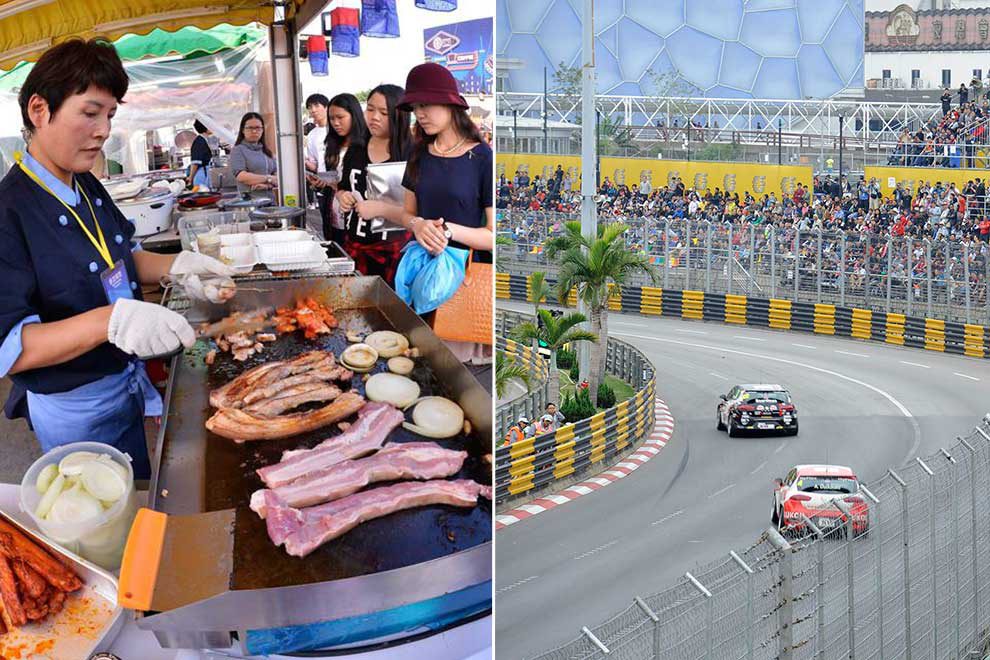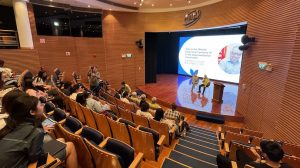The Macao authorities should invest more in “event bundling”, as a strategy to promote diversification of its tourism industry from casino gambling. That is according to an academic paper that explored such a practice and its effects on tourism.
The paper was written by 2 IFT scholars – Dr. Hazel Xu Yueying and Ms. Sherry Tan Xiuchang – and Dr. Anthony Wong Ip Kin from the City University of Macau. The research, “Exploring event bundling: The strategy and its impacts”, was published last year in the academic journal Tourism Management. It was the first paper of its kind to consider the phenomenon of holding events concurrently, the authors noted. IFT funded the research.
“A destination with multiple events taking place at the same time will create a better festive atmosphere and leave an impression of diversity on the visitors,” the researchers concluded.
They added: “Hence, [such strategy] could attract and retain more tourists with [via event bundling] an enhanced image of the destination. It is critical to destinations like Macao, where the image of ‘gaming centre’ is too strong and needs to be changed.”
The scholars highlighted that event bundling could in particular play an important role regarding tourism product development in those destinations with limited natural resources or in places that want to diversify their tourism offerings. “As event themes are somewhat homogenous and getting easier to be copied, creating event packages or bundles could be a new way to differentiate the event experience and the overall trip experience,” they said.
The research findings showed that – from the perspective of destination managers and event planners – event bundling had several benefits, including: moderating costs for organisers; opening each event to new consumer market segments; creating added value for tourists; and helping to differentiate the destination.
The researchers highlighted that holding multiple events concurrently made allocation of resources – including manpower, promotional budgets and supplies of goods and services to support events – “more effective and efficient”. This, the academics explained, was because events often shared similar cost structures, with a high ratio of fixed costs.
The authors noted that small-scale and newly developed events yet to build a following were those more likely to benefit from being bundled with a larger, well-established event.
Added value for tourists
The research conclusions were based on 2 independent studies. For the first study, the researchers conducted in-depth interviews with a small group of industry participants, and followed a qualitative approach. “The major goal was to seek an in-depth understanding of the rationale of [an] event bundling strategy from the varied perspectives of different event stakeholders,” the scholars wrote in their paper. Interviewees included event organisers, policymakers and event attendees.
The second study followed a quantitative approach: a specially-prepared questionnaire was answered by more than 800 tourists during the Macau Grand Prix and the Macau Food Festival – 2 well-known events held concurrently in Macao each November since 2003. Attendance of at least one of the events was a main eligibility criterion for those surveyed.
The survey results showed that using an event bundling strategy translated into “a significantly positive effect on event attendees’ trip value, which further has a positive effect on destination loyalty”. The researchers concluded that “bundled events could create higher perceived value [for tourists] in economic and emotional aspects than a solitary event could.”
They added: “As in the case of the Macau Grand Prix and the Macau Food Festival, after watching car racing during the day, attendees can enjoy food and cuisine culture in the Macau Food Festival at night.”
The authors however cautioned about the potential negative impacts of event bundling. They highlighted the need to consider the seasonal aspects of tourism and the overall capacity of each destination while implementing an event bundling strategy, to avoid negative effects such as overcrowding and the pushing up of accommodation prices for attendees.
Another topic raised by the scholars in their paper was the importance of finding events with compatible themes and that could be held concurrently. “This symbiotic relationship between multiple events does require care in the matching/pairing process from the organisers, as there should be compatible/similar themes and complementary offerings from each event,” they wrote.
The researchers added: “For event planners, it should be noted that event bundling is not a panacea. Although some event values perceived by tourists may increase in the case of bundling, other values would be [squeezed] out for specific events. Small or new events will generally benefit more from bundling by leveraging the customer base, reputation, expertise and other resources; but large-scale events might want to consider what kinds of added value the bundle can bring to attendees, before going into the strategy.”
More info
Dr. Anthony Wong Ip Kin, also known as Dr. IpKin Anthony Wong, is a scholar at the City University of Macau. He has a doctorate in communication and information sciences from the University of Hawaii at Manoa, in the United States. Dr. Wong’s research interests include service and tourism marketing, casino marketing and management, and tourist motivation and behaviour.
IFT Lecturer Ms. Sherry Tan Xiuchang specialises in event management. She holds a master’s degree in business administration from the University of Montreal, in Quebec, Canada. Prior to joining IFT, Ms. Tan worked in the meeting and convention industry, gleaning experience in organising a wide range of events. Her research interests include event tourism, tourist behaviour and service management.
http://dx.doi.org/10.1016/j.tourman.2015.07.014









